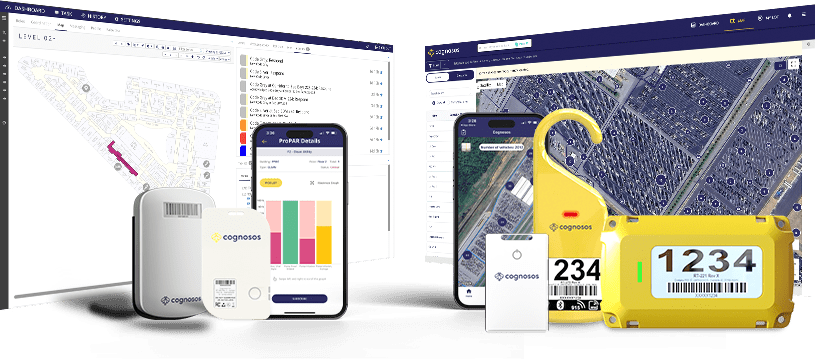While hospitals prioritize precision in numerous areas, temperature monitoring is often overlooked despite its critical role. Medications and vaccines require precise temperature regulation to remain safe and effective for patients.
Manual temperature monitoring methods are time consuming and prone to human error, leaving hospitals vulnerable to compliance risks and costly spoilage. Instead, hospitals equipped with an automated temperature monitoring system can use real-time data, instant alerts, and automated reporting to significantly reduce waste, ensure compliance, and optimize efficiency.
Below, we explore the basics of temperature monitoring and why it’s critical for hospital operations.
What Is Temperature Monitoring and Why Is It Critical in Hospitals?
Temperature monitoring (or environmental monitoring) is the process of continuously tracking the temperatures of sensitive storage areas in hospitals, such as refrigerators, freezers, and controlled rooms where medications, vaccines, and blood are kept. These items have specific temperature requirements that, if not met, can compromise their effectiveness and safety. For example:
- Vaccines and medications: Certain vaccines, such as those for COVID-19, require storage at ultra-low temperatures. Failure to maintain these conditions can render them ineffective, leading to wasted doses and potential risks to public health.
- Blood and biological specimens: Blood banks and laboratories must adhere to strict temperature regulations to prevent degradation of specimens, which could affect diagnostic accuracy and treatment decisions.
While hospitals are required to maintain detailed records for compliance audits, manually logging temperatures is inefficient and unreliable. Automated solutions ensure continuous monitoring and provide instant alerts when temperatures fall outside the acceptable range, allowing staff to take immediate action.
The Benefits of Automated Temperature Monitoring
Using automated temperature monitoring systems to manage the storage of medications, vaccines, and specimens, can offer several benefits:
Regulatory compliance
Healthcare facilities must meet strict standards set by organizations like the Joint Commission. If temperature issues arise within the healthcare facility and are not dealt with efficiently, the facility’s Joint Commission compliance could be at risk.
Automated monitoring ensures compliance by maintaining precise, timestamped records that can be easily retrieved for audits.
Real-time alerts and intervention
Unlike manual checks that may occur only a few times a day, automated systems provide continuous tracking and send instant notifications when temperatures go out of range. This allows staff to address issues immediately before they result in spoiled medications or unsafe conditions.
Reduced labor and increased efficiency
Manually recording temperatures takes up valuable staff time that could be better spent on patient care. Automation eliminates this burden and reduces the risk of human error.
Cost savings and waste reduction
According to the CDC’s Vaccine Storage and Handling Toolkit, vaccine potency is reduced every time the vaccine is exposed to an improper condition — potentially leading to unusable vaccines. And those spoiled vaccines can cost hospitals tens of thousands of dollars each year.
Automated monitoring significantly reduces these losses by immediately alerting staff to temperature-related issues, so they can prevent spoilage before it happens.
Using Temperature Monitoring to Protect Patients and Reduce Waste
Hospital leaders understand the importance of optimizing operational efficiency and managing costs — while continuing to deliver exceptional patient care. Ensuring the proper storage of temperature-sensitive items is crucial to patient safety and financial sustainability.
By implementing a real-time temperature monitoring system like the one from Cognosos, hospitals can take a proactive approach to temperature control, preventing spoilage of pharmaceuticals and vaccines, ensuring regulatory compliance, and freeing up staff to focus on what matters most: patient care.
How Cognosos Enhances Hospital Temperature Monitoring
Cognosos’ automated temperature monitoring solution is designed to help hospitals maintain compliance, improve efficiency, and prevent costly spoilage. Our system offers:
- 24/7 automated monitoring: Continuous tracking of refrigerators, freezers, and other storage areas without the need for manual intervention.
- Instant alerts: Immediate notifications to designated staff when temperature deviations occur, allowing for rapid response.
- Seamless compliance reporting: Automatically generated reports that hospitals can use for Joint Commission audits and other regulatory requirements.
- Integration with hospital systems: Designed to work with existing hospital infrastructure, ensuring smooth adoption and minimal disruption to operations.
With real-time temperature monitoring technology, hospitals can protect their valuable medical supplies, streamline compliance, and focus on delivering the highest quality care to patients.
To learn more about how Cognosos can equip you ensure safe storage and timely responses to temperature fluctuations, request a demo.



